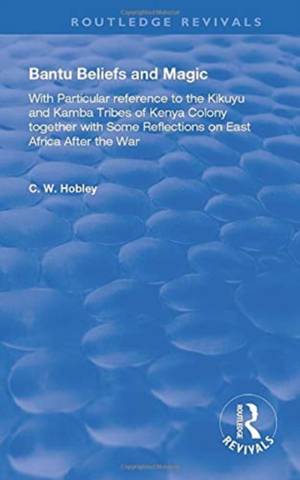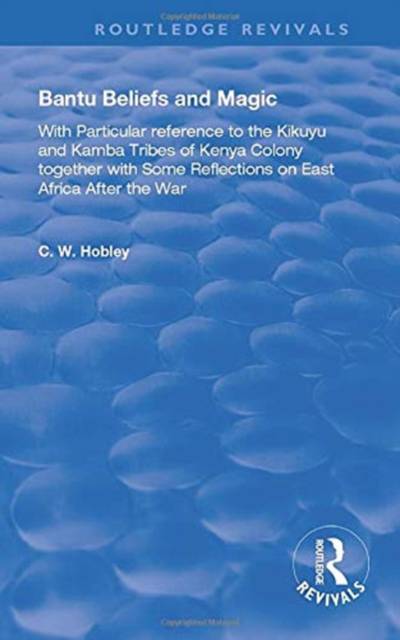
- Afhalen na 1 uur in een winkel met voorraad
- Gratis thuislevering in België vanaf € 30
- Ruim aanbod met 7 miljoen producten
- Afhalen na 1 uur in een winkel met voorraad
- Gratis thuislevering in België vanaf € 30
- Ruim aanbod met 7 miljoen producten
Bantu Beliefs and Magic
With Particular Reference to the Kikuyu and Kamba Tribes of Kenya Colony; Together with Some Reflections on East Africa After the War
C W HobleyOmschrijving
First published in 1922, the author of this book was for many years a Provincial Commissioner of what was then the Kenya Colony whose main objects were to place on record the results of investigations made among the native tribes in British East Africa, particularly among the Kikuyu and Kamba people, and to endeavour from a study of their ceremonial with regard to sacrifice and taboo, to obtain a better insight into the principles which underlie the outward forms and ceremonies of their ritual.
Together with natural religion and magic, the author discusses a variety of social activities influenced by religious beliefs, such as the organisation of councils, ceremonial oaths, war and peace, dances, legends, and the position of women in tribal society. The functions of some of the practices are self-evident or can be explained within the limits of psychological or anthropological terms, whilst others remain unexplained and seem inexplicable, even futile. The author's careful analysis of this last class provides interesting ethnological comment, for in seeking a better understanding of the psychology of one particular race, he draws attention also to analogous conditions of religious customs existing amongst other widely differing races.
In the last chapter, 'Quo Vadis', added to the second edition of 1938, the author furthers his discussion of East Africa after the war. Together with the factual analysis of the first three parts, these additional observations, invaluable once to administrators and all concerned in colonial government, today prove their value not only for students of East Africa, but for all those endeavouring to arrive at an adjustment between the old native social structure and the extraneous forces now operating with ever increasing intensity.
Specificaties
Betrokkenen
- Auteur(s):
- Uitgeverij:
Inhoud
- Aantal bladzijden:
- 402
- Taal:
- Engels
- Reeks:
Eigenschappen
- Productcode (EAN):
- 9781138391864
- Verschijningsdatum:
- 19/02/2021
- Uitvoering:
- Paperback
- Formaat:
- Trade paperback (VS)
- Afmetingen:
- 135 mm x 214 mm
- Gewicht:
- 730 g

Alleen bij Standaard Boekhandel
Beoordelingen
We publiceren alleen reviews die voldoen aan de voorwaarden voor reviews. Bekijk onze voorwaarden voor reviews.











